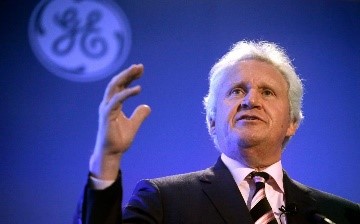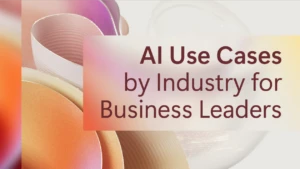
Telco Digital Transformation – Another Clarion Call to Action
When it comes to telcos (or otherwise known as Communications Service Providers, CSPs) transforming from their traditional business model and archaic organizational culture and structure, I am super passionate. Why may you ask? Well, having spent 20 years in the telco industry in various roles I have enough history there to really care. Additionally, as a Digital Strategist in Microsoft’s Digital Advisory Practice I work with companies every day that are on a journey to transform their businesses through Digital. Telcos are great companies with good people working in them. Just think, if it weren’t for telcos, life as we know it today would simply not exist. It is because of their networks and services that we can be productive from anywhere in the world, keep our family and friends closer than ever before, and be up to date on world events at all times. Yet, telcos have largely stagnated and have not been able to significantly transform their business models beyond their traditional sources of revenue, namely selling simple voice and data to a geographically constrained customer base.
So, the question then has to be asked. Why are these great companies that were the major innovators of the Internet struggling so much to find their place in the Internet Economy? Why does it seem that other organizations from even more legacy industries are able to digitally transform their businesses, while telcos struggle so much? This question is something I’ve pondered on a lot, and that is why one of the most staggering business transformations, namely that of  GE, is such an interesting case study. For the past 16 years GE has been undergoing the most consequential makeover in its history. GE was a classic old style, old industry conglomerate. Now people are calling GE a 125-year-old start-up – they’re positioning themselves as a digital industrial company that’s defining the future of the Industrial Internet of Things (IIoT). Although GE is still on the journey (and their recent results show that the journey may well be a long one), GE has made great strides in revamping its strategy, portfolio, global footprint, workforce, and culture. What can telcos across the globe learn from GE’s transformation? A good place to start are the lessons that ex-CEO Jeff Immelt reflected on as he handed over the reins of the company.
GE, is such an interesting case study. For the past 16 years GE has been undergoing the most consequential makeover in its history. GE was a classic old style, old industry conglomerate. Now people are calling GE a 125-year-old start-up – they’re positioning themselves as a digital industrial company that’s defining the future of the Industrial Internet of Things (IIoT). Although GE is still on the journey (and their recent results show that the journey may well be a long one), GE has made great strides in revamping its strategy, portfolio, global footprint, workforce, and culture. What can telcos across the globe learn from GE’s transformation? A good place to start are the lessons that ex-CEO Jeff Immelt reflected on as he handed over the reins of the company.
[inlinequote]“First, the leadership must be disciplined and focused. They need a solid point of view, with supporting initiatives that are all interconnected. Furthermore, it’s the leaderships’ job to connect the dots for everyone in the organization.”[/inlinequote]
Unfortunately, many telcos have failed to be focused and have tried their “luck” at a number of half-hearted endeavors to expand into new Internet or mobile-based services. The underlying reason for this has probably been the “cash cows” of the traditional telco services, which have a very strong hold on the thinking of CEOs and their top leadership.
[inlinequote]“Secondly, the leadership must embark on a journey before undertaking a transformation. They have to go through a period of rewiring their brains—getting to the point of profoundly believing that the world is changing, and that the survival of the company depends on anticipating the change and being able to react to it.”
[/inlinequote]
Very few leaders in the telco industry believe that their organizations will cease to exist if they do not transform quickly, which of course results in the lack of discipline and focus as mentioned above.
[inlinequote]
“Third, once the leadership truly believes that survival is dependent on transformation, then you have to get people in your organization to the same point.”
[/inlinequote]
The organizational culture in telcos is usually very resistant to change (because people are resistant to change), which means this becomes a very difficult endeavor to accomplish.
[inlinequote]
“Fourth, the leadership must be all in—they must make a bold, sustained commitment to the transformation.”
[/inlinequote]
This means keeping focus and being disciplined and making bold investment and strategic business decisions. For telcos, this is a tough ask as the business is very capitally intensive and they need to keep pumping money into network expansion and maintenance to keep the traditional business ticking over.
[inlinequote]
“Fifth, you must be resilient. It is so difficult to predict events. It is difficult to sustain transformation during tough times, but it’s the only way to create a better future.”
“Sixth, during the transformation you have to be agile and adapt to changing events.”
[/inlinequote]
The top-down command and control culture and hierarchical organizational structure prevalent in telcos make this extremely difficult to achieve.
[inlinequote]
Finally, you must embrace new kinds of talent, a new culture, and new ways of doing things.
[/inlinequote]
Telcos are not the first choice for top talent anymore, so attracting talented individuals that are digital natives and that thrive in a culture of change and uncertainty is challenging.
The survival of telcos depends on their ability to muster the confidence to take on the massive challenge to transform towards Digital Service Providers (DSPs) and cement their place in the new Digital Economy. The alternative is a sad one, with telcos fading into the shadows of the tech world, merely there to shuffle bits of voice or data along their networks. How can this be achieved? Do all telcos need to be platform providers? Do they all need to launch home grown IoT services? Do they all need to launch media streaming services or even better, acquire existing media companies? The answer is of course a resounding no, but each needs to have a strategy that they can rapidly execute while being agile and thereby taking advantage of the new paradigm of Digital. Each telco needs to plot their own course, with a truly digital strategy to guide them along the journey.
Starting the transformation is indeed challenging, but it must begin somewhere, and I would suggest that place is the second of Jeff Immelt’s lessons. CEOs and their top leadership teams need to come to the earth shaking realization that the world has changed and if they do not adapt and change through digitally transforming their businesses from their customer facing CRM systems, to the back-end OSS/BSS system, and even their underlying networks then their future truly is bleak. Then and only then will telcos flourish and start a brand new chapter in their illustrious histories.
 One such brave telco is Telefonica with AURA, it´s Intelligent Agent (aka Bot) based on Microsoft’s Azure Cognitive Services technology. AURA enables customers to manage their digital experiences with the company and control the data generated by using Telefónica’s products and services in a transparent and secure manner. Telefonica’s story does not begin here though, as they have been on a transformation journey since the early 2010s where they have invested massively in creating multiple platforms within the organization (networks, unified IT, integrated products and services), ultimately culminating in the 4th platform of their Intelligent Agent AURA.
One such brave telco is Telefonica with AURA, it´s Intelligent Agent (aka Bot) based on Microsoft’s Azure Cognitive Services technology. AURA enables customers to manage their digital experiences with the company and control the data generated by using Telefónica’s products and services in a transparent and secure manner. Telefonica’s story does not begin here though, as they have been on a transformation journey since the early 2010s where they have invested massively in creating multiple platforms within the organization (networks, unified IT, integrated products and services), ultimately culminating in the 4th platform of their Intelligent Agent AURA.
What do I hope this blog will achieve? As a minimum, it serves as yet another clarion call to telcos to digitally transform or fade slowly into the sunset. But hopefully, it will inspire some that transformation is achievable and will set them on their course to become true DSPs of the future.




